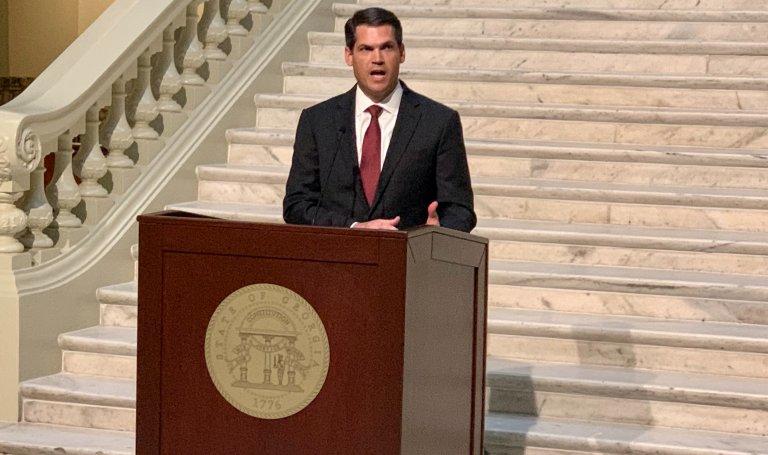
Caption
Lt. Gov. Geoff Duncan outlined his 2021 priorities, including photo ID requirements for absentee ballots. Georgia's election laws are expected to be a focal point of the 2021 legislative session.
Credit: Stanley Dunlap/Georgia Recorder

